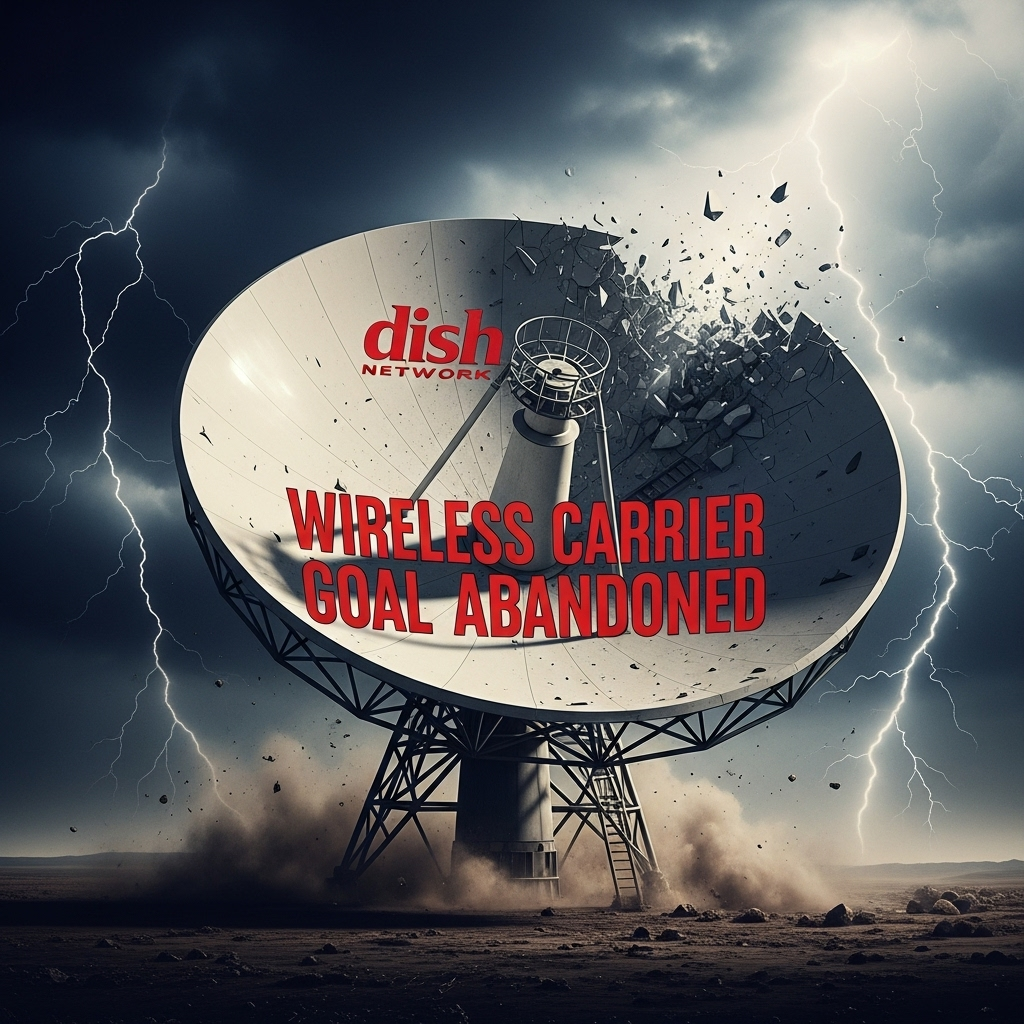Dish is abandoning its goal of becoming the fourth-largest wireless carrier.

Dish is abandoning its goal of becoming the fourth-largest wireless carrier.
Dish’s parent company EchoStar is selling a large portion of its 5G spectrum licenses to AT&T for $23 billion. Under the deal, Dish’s Boost Mobile will primarily operate on AT&T’s expanding network — a move that, according to Roger Entner, founder and lead analyst at Recon Analytics, marks “the end of the road for the fourth operator.”
As part of T-Mobile’s acquisition of Sprint in 2019, the Department of Justice required another company to step in as the fourth-largest wireless operator. Dish entered at that point, paying $1.4 billion to acquire Boost Mobile and other prepaid assets from Sprint. Since then, Dish has spent billions buying spectrum to build its own 5G network; as of last year, it said its network had reached close to 80 percent of the U.S. population, aligning with coverage deadlines set by the Federal Communications Commission.
But Dish struggled to repay its mounting debts, leading it to re-merge with EchoStar, the company it had originally spun off from in 2008. At the same time, it faced renewed pressure from the FCC to make use of its spectrum holdings.
In April, Elon Musk’s SpaceX wrote a letter to the FCC saying EchoStar had made “virtually no use” of its AWS-4 (2 GHz) spectrum band for satellite connectivity. Weeks later, FCC Commissioner Brendan Carr criticized the company’s slow expansion, launched an inquiry into EchoStar’s 5G buildout, and noted that Boost Mobile had been losing customers since the acquisition. Carr also questioned EchoStar’s use of the AWS-4 spectrum, which was not included in the deal with AT&T.
In July, Carr downplayed concerns about maintaining a fourth carrier, saying at an open meeting that there is no “magic number” of operators necessary to preserve U.S. competition. As Fierce Network reported, he explained: “We always look at the intersection of different factors to make sure there’s adequate competition.”
Now EchoStar is set to become a hybrid mobile network operator, combining its own network with the infrastructure of other providers. As its press release stated, Boost Mobile will provide connectivity through both AT&T towers and T-Mobile’s network. “This keeps Boost Mobile alive,” Entner remarked. “It gives them money, but in the end they don’t have much of a network left.”
EchoStar has indicated it will gradually decommission parts of Boost Mobile’s own wireless network. The fate of Dish’s 5G network, called Project Genesis — which launched in beta in 2022 and has since shown little progress — remains unclear. EchoStar co-founder Charlie Ergen emphasized in the press release: “EchoStar and Boost Mobile have met all of the FCC’s network buildout milestones. At the same time, this spectrum sale to AT&T and the hybrid MNO agreement are critical steps toward addressing the FCC’s concerns over spectrum usage.”
Meanwhile, AT&T says the new spectrum — 30 MHz from the 3.45 GHz mid-band and 20 MHz from the 600 MHz low-band — will strengthen its 5G service “in nearly every market nationwide.” The $23 billion deal is expected to close in mid-2026, and EchoStar CEO Hamid Akhavan added that the proceeds will be used chiefly to reduce debt, while the company continues to explore other “strategic opportunities” for its remaining spectrum.



